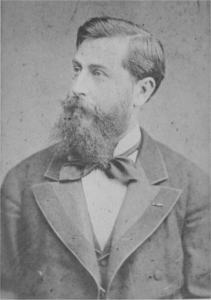Delibes, Flower Duet (from Lakmé)
 The opera Lakmé by Leo Delibes (1836-1891) follows many of the trends popular at the time it was written (premiered in 1883). The exoticism of the East had captured the imagination of the Western public a century or two earlier. Chinoiserie, the evocation of Chinese themes in art, had been firmly established especially in architecture and design. And Eastern themes had appeared in opera, particularly in France. We addressed this in a previous post on Rameau’s Les Indes galantes (1735).
The opera Lakmé by Leo Delibes (1836-1891) follows many of the trends popular at the time it was written (premiered in 1883). The exoticism of the East had captured the imagination of the Western public a century or two earlier. Chinoiserie, the evocation of Chinese themes in art, had been firmly established especially in architecture and design. And Eastern themes had appeared in opera, particularly in France. We addressed this in a previous post on Rameau’s Les Indes galantes (1735).
In the 19th century, opera begins to deal more with Eastern themes, behavior, and conflict with the West. Ralph P. Locke describes the type of plot one might expect to find:
Young, tolerant, brave, possibly naive, white-European tenor-hero intrudes, at risk of disloyalty to his own people and colonialist ethic, into mysterious, dark-skinned, colonised territory represented by alluring dancing girls and deeply affectionate, sensitive lyric soprano, incurring wrath of brutal, intransigent tribal chieftain (bass or bass-baritone) and blindly obedient chorus of male savages.
Lakmé delivers. In the “Flower Duet” (Act I), Lakmé (the daughter of a Brahmin priest) and her servant Millika gather flowers along the river, setting the stage for her first encounter with a British officer.
The “Flower Duet” appears in numerous advertisements and films, so you will probably recognize it.



